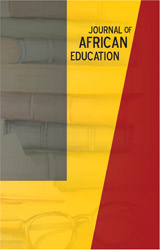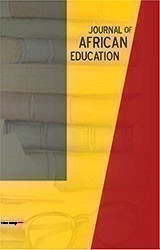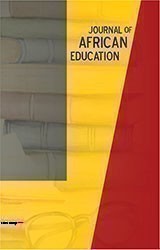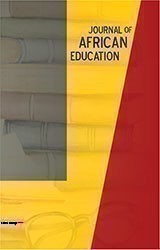
 editor@adonis-abbey.com
editor@adonis-abbey.com ![]() UK: 0207 795 8187 / Nigeria:+234 705 807 8841
UK: 0207 795 8187 / Nigeria:+234 705 807 8841

Publication Frequency: Started as a triannual but became a quarterly in 2025. ISSN: 2633-2922 E-ISSN: 2633-2930. The journal change its name in May 2024 to Journal of African Education and Traditional Learning Systems ISSN 3049-9577 (Print) E-ISSN 3049-9585 (Online)
View Table of Content
Journal of African Education (JAE) Volume 5, Number 1, April 2024
This editorial is a self-study reflection on our journey to improve our teaching practices through rethinking and designing Business Studies Didactics curriculum and pedagogy using ChatGTP design tools. The project was designed to align the module curriculum and pedagogy to our institutional strategic intent and graduate attributes. This reflective exercise was further informed by our institutional efforts to provide a distinctive education that strives to remain relevant and responsive to the academic project within organisational objectives. We sought to do justice to the higher education teaching fraternity through offering a fine-grained teacher education curriculum. In this editorial, we report on a curriculum that we designed for innovative teaching strategies using ChatGTP design tools. This editorial is part of the Journal of African Education Volume 5 Issue 1....
View Table of Content
Journal of African Education (JAE) Volume 4, Number 3, December 2023
The primary objective of this editorial note is to position the journal, share our four years‟ valuable lessons and experience gained from our duties; wherein we served in different portfolios, a chief editor and co-opted administrator. The manuscript further provides a guideline on writing a journal. Lastly, the manuscript presents the list of articles presented in the Journal of African Education (JAE) Volume 4, Issue 3. Positioning the Journal of African Education and its intentions The Journal of African Education (JAE) is an international journal that competes in the space of education, and covers basic, higher, formal, and informal education....
View Table of Content
Journal of African Education (JAE) Volume 4, Number 1, April 2023
When there are best practices of educational leadership, literature illuminated in this editorial and the reflection of my lived experience show that academia is subject to unbearable working conditions due to toxic educational leadership, specifically, academic woman leadership. My academic adversities under academic women leadership were caused by micro-management and misuse of power that resulted in unbearable working conditions. I recommend the lived values framework, that is built upon university goals and objectives; university procedures and policies; and local and international imperatives. I believe that quality education is possible in the inviting environment for teaching, learning and working where teachers’ productivity is enhanced. University as a hub for knowledge production and dissemination should lead from the front in ensuring that it produces quality graduates and agents of change needed to achieve society free from poverty, hunger, and inequality as prescribed by...
To subscribe to any of the journals, Please Email Us.














